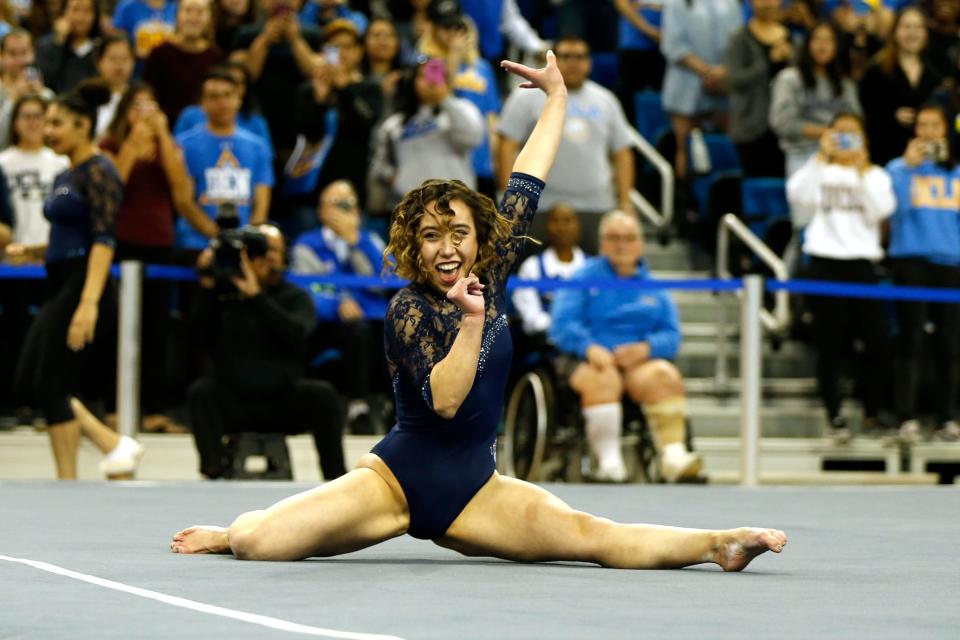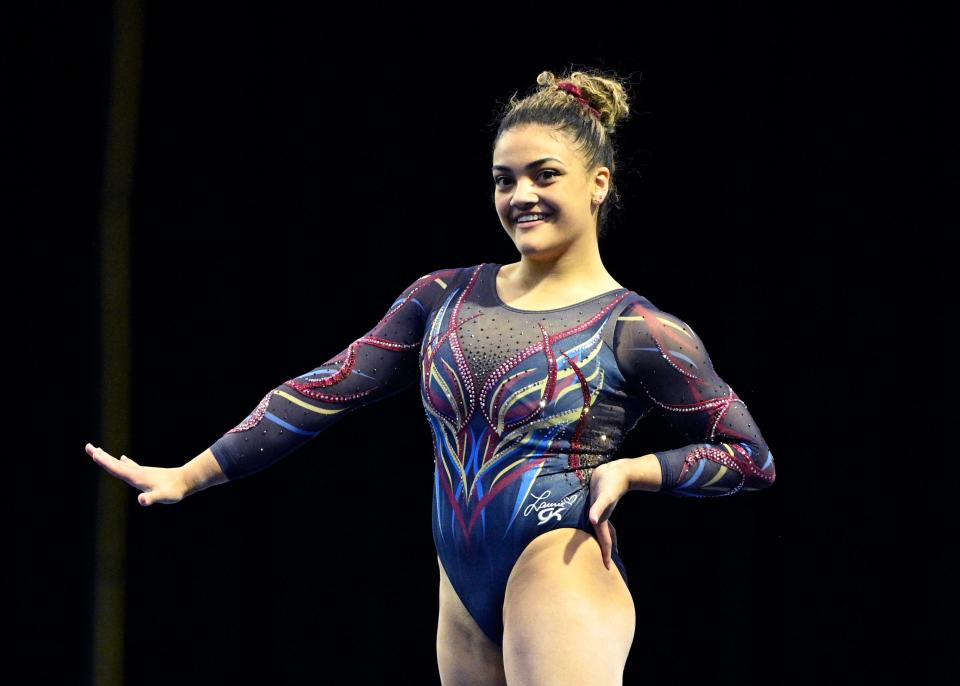Laurie Hernandez and Katelyn Ohashi are striving to make gymnastics a more positive space
- Oops!Something went wrong.Please try again later.
- Oops!Something went wrong.Please try again later.
- Oops!Something went wrong.Please try again later.
Elite gymnast Laurie Hernandez brought home a gold and a silver medal from the 2016 Olympic Games, but she said she spent most of her time in Rio de Janeiro dealing with anxiety.
“At 16 [years old], I was like, ‘I’m nervous; no I’m not,” Hernandez said. “I’m confident. I trained for this. It was full-on robot mode.”
However, five years later, the 2016 medalist has had a change of mindset that she wants to share with other young athletes. She says she has learned to acknowledge and process her emotions and is also open about the ways that therapy has helped her.
“I used to do sports psychologists, because in the sport, there were lots of questions that I had in terms of getting nervous and things like that,” Hernandez said. “Then it rolls around to ‘you are not what you do, you are you.’ Speaking to somebody who doesn't know you and doesn't know the sport felt really good to just get to know myself a little better.”
Katelyn Ohashi, the former UCLA standout and viral video sensation, has had a similar journey through her gymnastics career. In ESPN’s 2019 Body Issue, she opened up about her struggles with body image and disordered eating, and though she no longer competes, Ohashi has become an advocate for mental health awareness in the sport.

“Through gymnastics, we learned how to suppress our emotions and compartmentalize, and it didn't feel like we ever had people on our side,” Ohashi said. “Now this conversation of mental health is opening so many doors. It allows people to be like, ‘Oh, I'm not alone in this situation.’ It is OK to not be OK, and it is OK to talk about it. We all have stories that are worth sharing.”
Though neither gymnast will compete in the upcoming Tokyo Games, both will be participating in the post-Olympic Gold Over America Tour led by Simone Biles in partnership with Athleta. In the past, the tour has been sponsored by USA Gymnastics, but the gymnasts took it upon themselves this year to craft a performance that will give them the opportunity to convey the importance of self-care beyond sports and to showcase the uniqueness of each individual’s path.
Hernandez said Biles pitched the idea of including non-elite and non-Olympic gymnasts. The current lineup includes Ohashi’s former UCLA teammates Danusia Francis and Peng-Peng Lee, as well as 2017 world champion Morgan Hurd, who will miss the Olympics because of an elbow injury.
Every gymnast on the tour roster is also a woman of color. Biles, Francis and Olympic hopeful Jordan Chiles are Black, Hernandez is Puerto Rican, and Ohashi, Hurd and Lee are Asian.
This [tour] is going to be different in that we get to showcase who we are as people and not just as gymnasts,” Hernandez said. “There's a lot of diversity between what we do and who we are. There's so many different roads to success, not just one, and we get to showcase that this time around.”

NANCY ARMOUR: Comeback didn't get Laurie Hernandez to another Olympics – but it brought her peace
While Hernandez has only competed at the elite level, Ohashi went through the NCAA system at UCLA, where she gained notice because of her high-energy floor routine that garnered more than 117 million views on YouTube. Ohashi said she sees the changes happening in gymnastics culture also reflected across college sports in issues such as name, image and likeness rights.
“I do believe that maybe the NCAA had our best interest in the beginning, but now it's time for them to change and figure out how to best represent their athletes,” she said. “It doesn't feel like we have the most support from [the NCAA], and being able to show ourselves as more than athletes was really difficult during college. I think this is just opening the door for athletes to explore different avenues and be themselves.”
As the U.S. Olympic Gymnastics Trials, which begin June 24, draw closer, Hernandez said she hopes all of the athletes competing feel the support from their fellow gymnasts and are able to be proud of their accomplishments regardless of the outcome.
“I just want them to be happy,” she said. “I hope they know that, no matter what the decision is, they’re absolutely incredible. It doesn’t mean they are a bad athlete if it doesn’t work out. We are just so, so proud of them.”
Contact Emily Adams at eaadams@gannett.com or on Twitter @eaadams6.
This article originally appeared on USA TODAY: Gymnasts Laurie Hernandez and Katelyn Ohashi talk mental health

